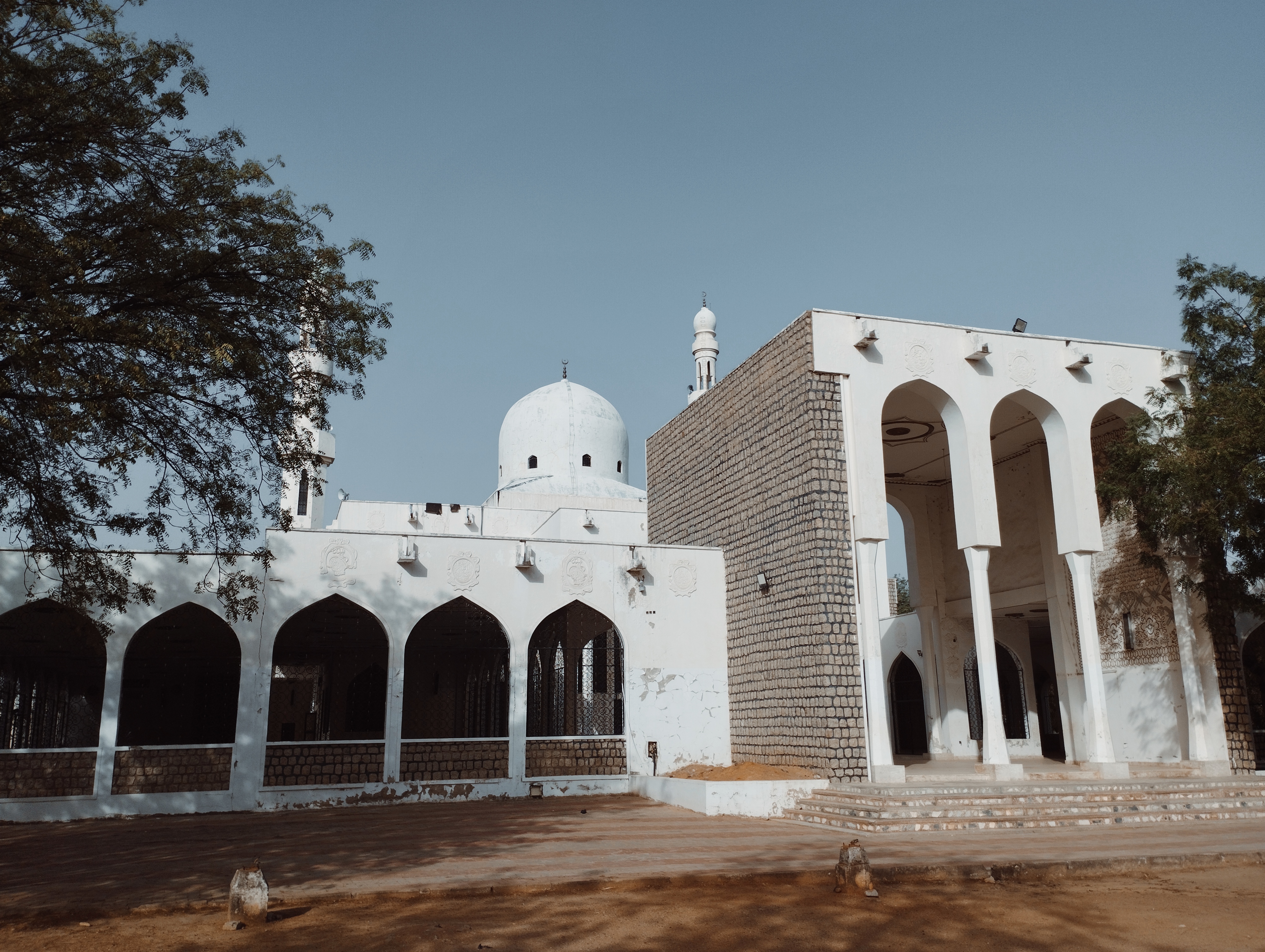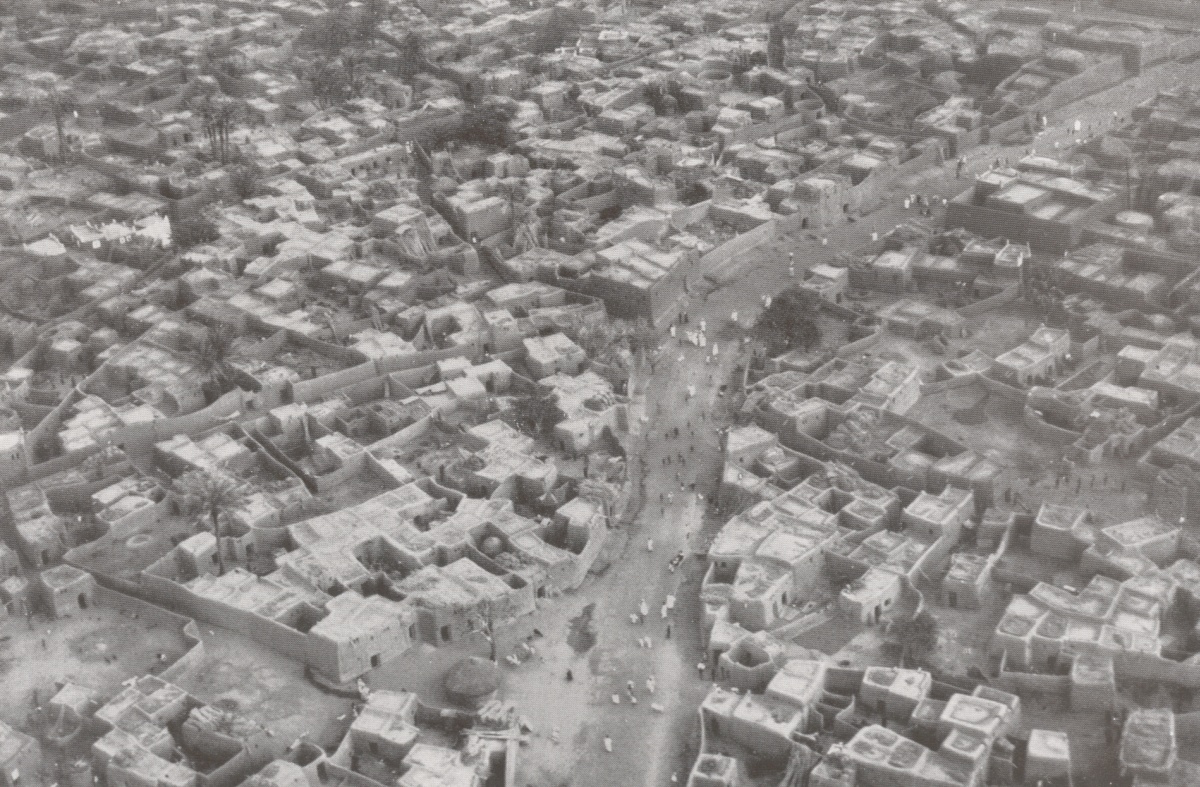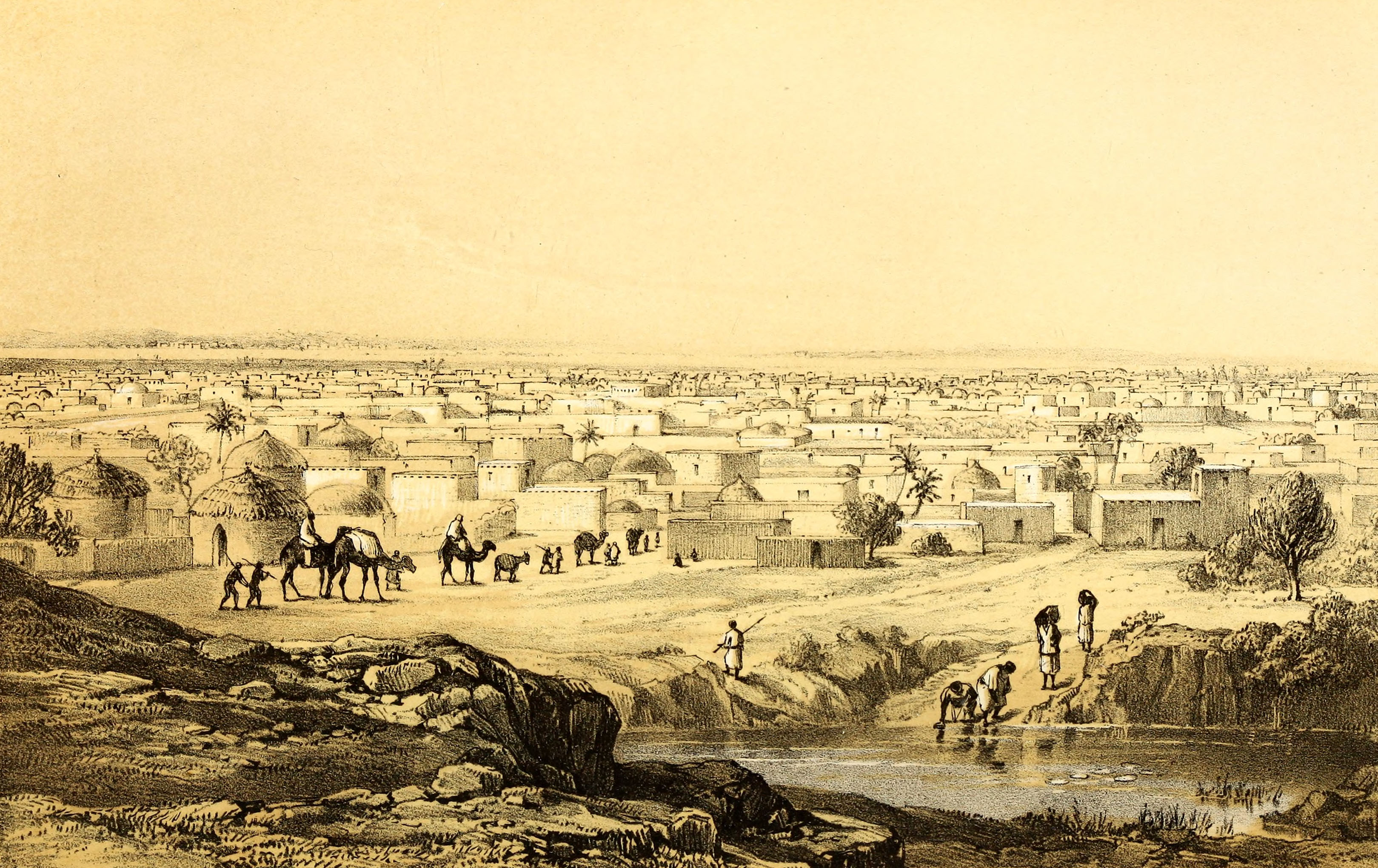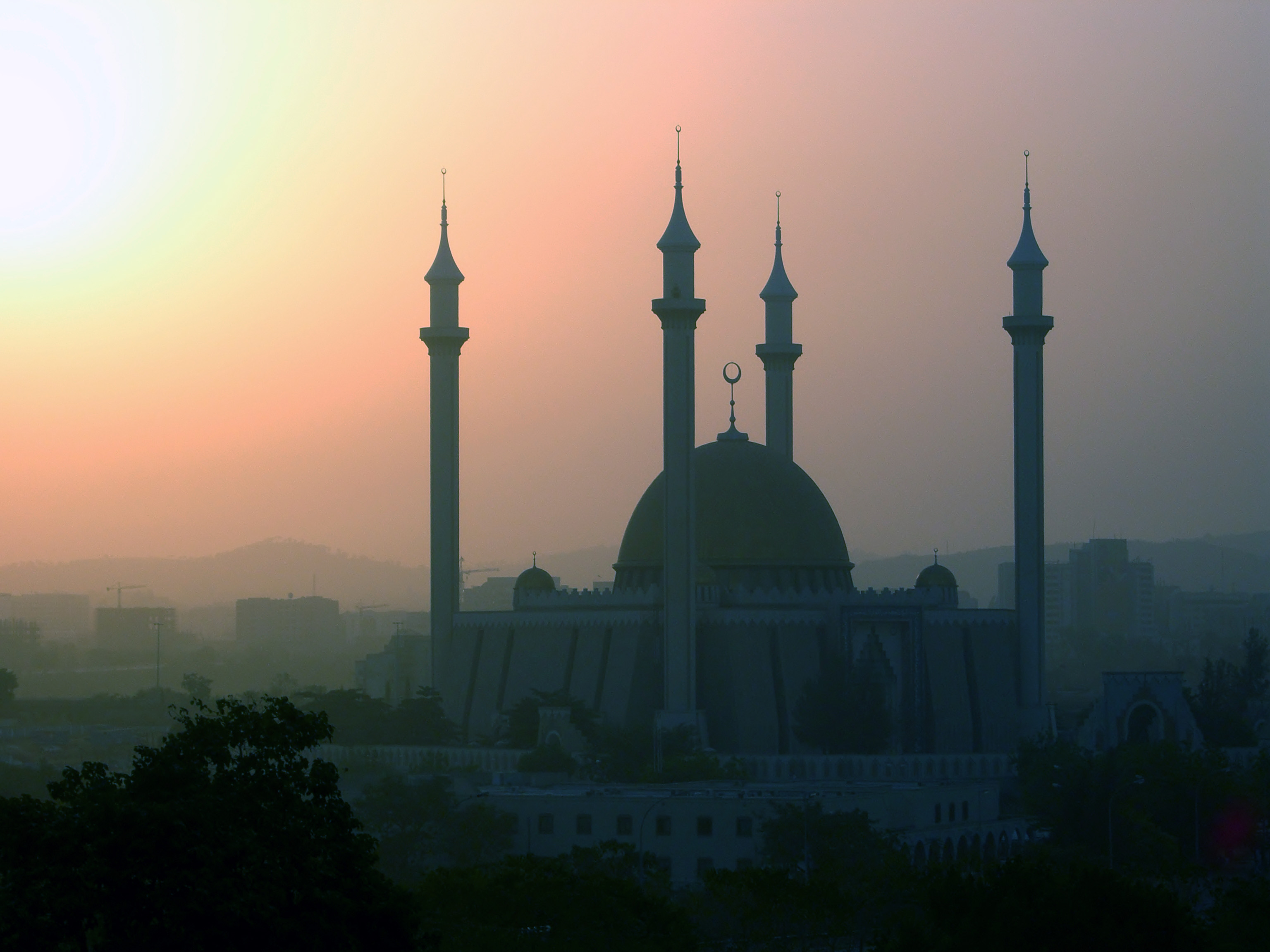|
Hameem Nuhu Sanusi
Muhammad Hameem Nuhu Sunusi CFR (born 26 February 1979), is a Nigerian monarch who is the current Emir of Dutse, the capital city of Jigawa State in the Northern Nigeria. He was appointed as the 22nd Emir of Dutse in 2024, following the death of his father, Nuhu Muhammad-Sanusi, who was the 21st Emir of Dutse He spent his early years in Kano State before relocating to Jigawa in 1995, following his father's ascension to the position of Emir of Dutse. Early life and education Muhammad Hameem Nuhu Sunusi's educational journey began in Kano, where he attended Kano Capital School and later Airforce Primary School for his nursery and primary education. He continued his secondary education at Crescent International and later graduated from Federal Government College Kano. Following his basic education, he pursued higher studies abroad, earning both a first degree and a master's degree from a Malaysian university. In 2006, he completed the National Youth Service Corps The Natio ... [...More Info...] [...Related Items...] OR: [Wikipedia] [Google] [Baidu] |
Dutse Emirate
Dutse Emirate is a historical emirate council in Jigawa State, Nigeria. It traces its origins back to legends of early hunters and has been influenced by various rulers and events. The emirate's history includes connections to the List of rulers of Kano, Sarkin Kano, periods of Fula people, Fulani ascendancy, and adaptation to colonial-era changes. The current emir of Dutse is Hameem Nuhu Sanusi. History Beginning According to legend, the area now called Dutse was first discovered by a hunter named Duna-Magu, who was great at hunting, especially gazelles. Because of this, he gave it the nickname "Gadawur." The settlement of Garu is believed to have existed even before Bagauda Dynasty, Bagauda's arrival in Kano during the late 1st millennium. Connection to Sarkin Kano The earliest written record about Dutse is in the Kano Chronicle, which mentions its defeat by the Kano ruler Abdullahi Burja around the years 1438–1452. After this defeat, Abdullahi Burja married a daughter ... [...More Info...] [...Related Items...] OR: [Wikipedia] [Google] [Baidu] |
Jigawa State
Jigawa (; 𞤤𞤫𞤴𞤮𞤤 𞤶𞤭𞤺𞤢𞤱𞤢) is a state in Nigeria, located in the northern region of the country. Jigawa was created on 27 August 1991, under the General Ibrahim Babangida military administration. Jigawa State was formerly part of Kano State and was located in the northeastern-most region of Kano State. It forms part of Nigeria's national border with the Republic of Niger. The state capital and largest city is Dutse. Jigawa state has 27 local governments. The eighth largest state by population, residents of Jigawa State are predominantly of Hausa or Fulani background. The vast majority of the residents of Jigawa State are Muslim, and it is one of the twelve states in the country to be governed by Sharia law. Jigawa State is famous for the ''Dutsen Habude'' cave paintings in the town of Birnin Kudu, which have been dated back to the Neolithic period. The town of Hadejia (formerly ''Biram'') is notable as being one of the traditional "seven t ... [...More Info...] [...Related Items...] OR: [Wikipedia] [Google] [Baidu] |
Northern Nigeria
Northern Nigeria (or Arewa, Arewancin Nijeriya) was an autonomous division within Nigeria, distinctly different from the southern part of the country, with independent customs, foreign relations and security structures. In 1962, it acquired the territory of the United Kingdom, British Northern Cameroons, which voted to become a province within Northern Nigeria. In 1967, Northern Nigeria was divided into the North-Eastern State, North-Western State, Kano State, Kaduna State, Kwara State, and the Benue-Plateau State, each with its own Governor. History Prehistory The Nok culture, an ancient culture dominated most of what is now Culture of Northern Nigeria, Northern Nigeria in prehistoric times, its legacy in the form of terracotta statues and megaliths have been discovered in Sokoto State, Sokoto, Kano (city), Kano, Birnin Kebbi, Birinin Kudu, Nok and Zaria. The Kwatarkwashi Culture, Kwatarkwashi culture, a variant of the Nok culture centred mostly around Zamfara State, Zam ... [...More Info...] [...Related Items...] OR: [Wikipedia] [Google] [Baidu] |
Kano State
Kano (Hausa language, Hausa: ) is one of the 36 States of Nigeria, states of Nigeria, located in the Northern Region, Nigeria, northern region of the country. According to the national census done in 2006, Kano State is the List of Nigerian states by population, most populous state in Nigeria. The recent official estimates taken in 2016 by the National Bureaucracy, Bureau of Statistics found that Kano State was still the largest state by population in Nigeria. Created in 1967 out of the former Northern Region, Nigeria, Northern Region, Kano State borders on Katsina State to the northwest for about 210 km (130 miles), Jigawa State to the northeast for 355 km (221 miles), Bauchi State to the southeast for 131 km (82 miles), and Kaduna State to the southwest for 255 km. The state's capital and largest city is the city of Kano (city), Kano, the List of Nigerian cities by population, second most populous city in Nigeria after Lagos. The incumbent governor of the s ... [...More Info...] [...Related Items...] OR: [Wikipedia] [Google] [Baidu] |
Kano (city)
Kano (Ajami script, Ajami: كَنُواْ) is a city in northern Nigeria and the capital of Kano State. It is the List of Nigerian cities by population, second largest city in Nigeria after Lagos, with over four million citizens living within . Located in the savanna, south of the Sahel, Kano is a major route of the trans-Saharan trade, having been a trade and human settlement for millennia. It is the Traditional states of Nigeria, traditional state of the Ibrahim Dabo, Dabo dynasty who have ruled as emirs over the city-state since the 19th century. Kano Emirate Council is the current traditional institution inside the city boundaries of Kano, and under the Authority bias, authority of the Kano State Government, Government of Kano State. The city is one of the seven medieval Hausa kingdoms. The principal inhabitants of the city are the Hausa people , Hausa and Fula people , Fulani people. Centuries before British colonization, Kano was strongly cosmopolitan with settled popu ... [...More Info...] [...Related Items...] OR: [Wikipedia] [Google] [Baidu] |
National Youth Service Corps
The National Youth Service Corps (NYSC) is a mandatory, post-tertiary scheme set up by the Nigerian government during the military regime of Head of State, Yakubu Gowon, to "reconstruct, reconcile and rebuild the country after the Nigerian Civil war". There is no military conscription in Nigeria, but since 1973, graduates of universities and polytechnics have been required to take part in the National Youth Service Corps program for one year. This is known as the "national service year". Ahmadu Ali served as the first Director-General of the NYSC until 1975. The incumbent Director-General is Brigadier General Olakunle Oluseye Nafiu. Major General Suleiman Kazaure was appointed director general of the NYSC on 18 April 2016 and served as the 17th DG of the scheme until his redeployment to the Nigerian Army Resource Centre on 26 April 2019. History NYSC was created on 22 May 1973 during the general Yakubu Gowon regime as an avenue for the reconciliation, reconstruction, a ... [...More Info...] [...Related Items...] OR: [Wikipedia] [Google] [Baidu] |
Living People
Purpose: Because living persons may suffer personal harm from inappropriate information, we should watch their articles carefully. By adding an article to this category, it marks them with a notice about sources whenever someone tries to edit them, to remind them of WP:BLP (biographies of living persons) policy that these articles must maintain a neutral point of view, maintain factual accuracy, and be properly sourced. Recent changes to these articles are listed on Special:RecentChangesLinked/Living people. Organization: This category should not be sub-categorized. Entries are generally sorted by family name In many societies, a surname, family name, or last name is the mostly hereditary portion of one's personal name that indicates one's family. It is typically combined with a given name to form the full name of a person, although several give .... Maintenance: Individuals of advanced age (over 90), for whom there has been no new documentation in the last ten ... [...More Info...] [...Related Items...] OR: [Wikipedia] [Google] [Baidu] |
Nigerian Muslims
Islam is one of the major religions in Nigeria, with a history that spans over a millennium. While some scholars suggest that Islam was introduced to the region as early as the 9th century,it is more commonly accepted that the religion began to take root in what is now modern-day Nigeria around the 11th century. The spread of Islam was primarily facilitated by trade routes across the Sahara and the influence of Muslim merchants and scholars. By the 19th century, the Sokoto Caliphate, founded through the Fulani Jihad led by Usman dan Fodio, established Islam as the predominant religion in northern Nigeria. The religion also spread to the southwest among the Yoruba through trade and cultural exchange. Islam remains a major religion in Nigeria today, practised by approximately 47–54% of the population. The variance in estimations reflects the differences in survey methodologies and the absence of an official national religious census since 1963. The majority of Nigerian Musl ... [...More Info...] [...Related Items...] OR: [Wikipedia] [Google] [Baidu] |
Nigerian Traditional Rulers
Nigerian traditional rulers often derive their titles from the rulers of independent states or communities that existed before the formation of modern Nigeria. Although they do not have formal political power, in many cases they continue to command respect from their people and have considerable influence in their community. Though their bearers usually maintain the monarchical styles and titles of their sovereign ancestors, both their independent activities and their relations with the central and regional governments of Nigeria are closer in substance to those of the high nobility of old Europe than to those of actual reigning monarchs. Pre-colonial period Modern Nigeria encompasses lands traditionally occupied by highly diverse ethnic groups with very different languages and traditions. In broad terms, the southeast was occupied mainly by Igbo, the Niger Delta by Edo and Igbo related people, the southwest by Yoruba and related people and the north by Hausa and Fulani ... [...More Info...] [...Related Items...] OR: [Wikipedia] [Google] [Baidu] |






